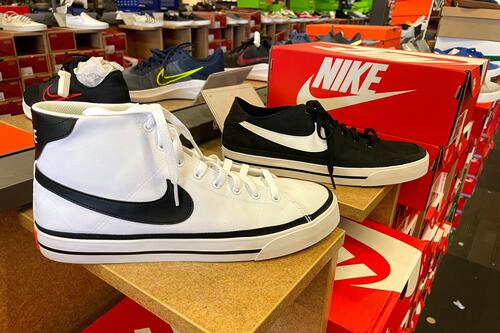Covid-19 Factory Closures Prompt Some U.S. Businesses to Rethink Vietnam

Covid-19 Factory Closures Prompt Some U.S. Businesses to Rethink Vietnam
Last week The Wall Street Journal reported on the impacts of factory closures in Vietnam on American businesses. Companies such as Lululemon Athletica and Nike have significant manufacturing presences in the country, a result of rising U.S.-China trade tensions pushing businesses to diversify their locations of production. Since the arrival of the COVID-19 Delta variant in Vietnam and stricter lockdowns beginning July 2021, manufacturing operations have been forced to slow or halt production.
Coronavirus safety measures implemented by the Vietnamese government include requiring factories to house workers or otherwise isolate them from society. The “three-in-one-place” program is one method employers have used to keep factories running, in which workers eat, sleep, and work in the same building. A slow vaccine rollout compared with neighboring countries has slowed Vietnam’s economic recovery.
Nike, which manufactures about half of its footwear in the country, reportedly lost ten weeks’ worth of production due to factory shutdowns – or 100 million pairs of shoes. This setback has prompted Nike to reconsider its decision to manufacture such a large portion of its product in one country. In addition to losses suffered by companies like Nike who manufacture in Vietnam, the factory shutdowns also have downstream supply chain impacts for companies like Apple. Apple, which has both factories and suppliers in Vietnam, reportedly planned on shifting production of its products out of China and into Vietnam over the next several years. But according to 9to5Mac, the company put these plans on hold in response to the heightening COVID-19 crisis in the country.
It is fascinating the degree to which Vietnam, decades after the Vietnam War, continues to feature in the American conversation because of its strategic value against an increasingly powerful China. The country is often presented as an alternative to China for manufacturers – especially in the garment industry – because of its low cost of labor and government’s reputation as friendly to foreign businesses. These same features at one point attracted American companies to outsource manufacturing to China. As China has grown more expensive and politically fraught as a manufacturing hub, it is not surprising to see international companies bring the same challenges (and, admittedly, jobs) to Vietnam that were thrust on developing East Asian nations.
Sources:
https://9to5mac.com/2021/08/18/apple-supply-chain-vietnam-china/